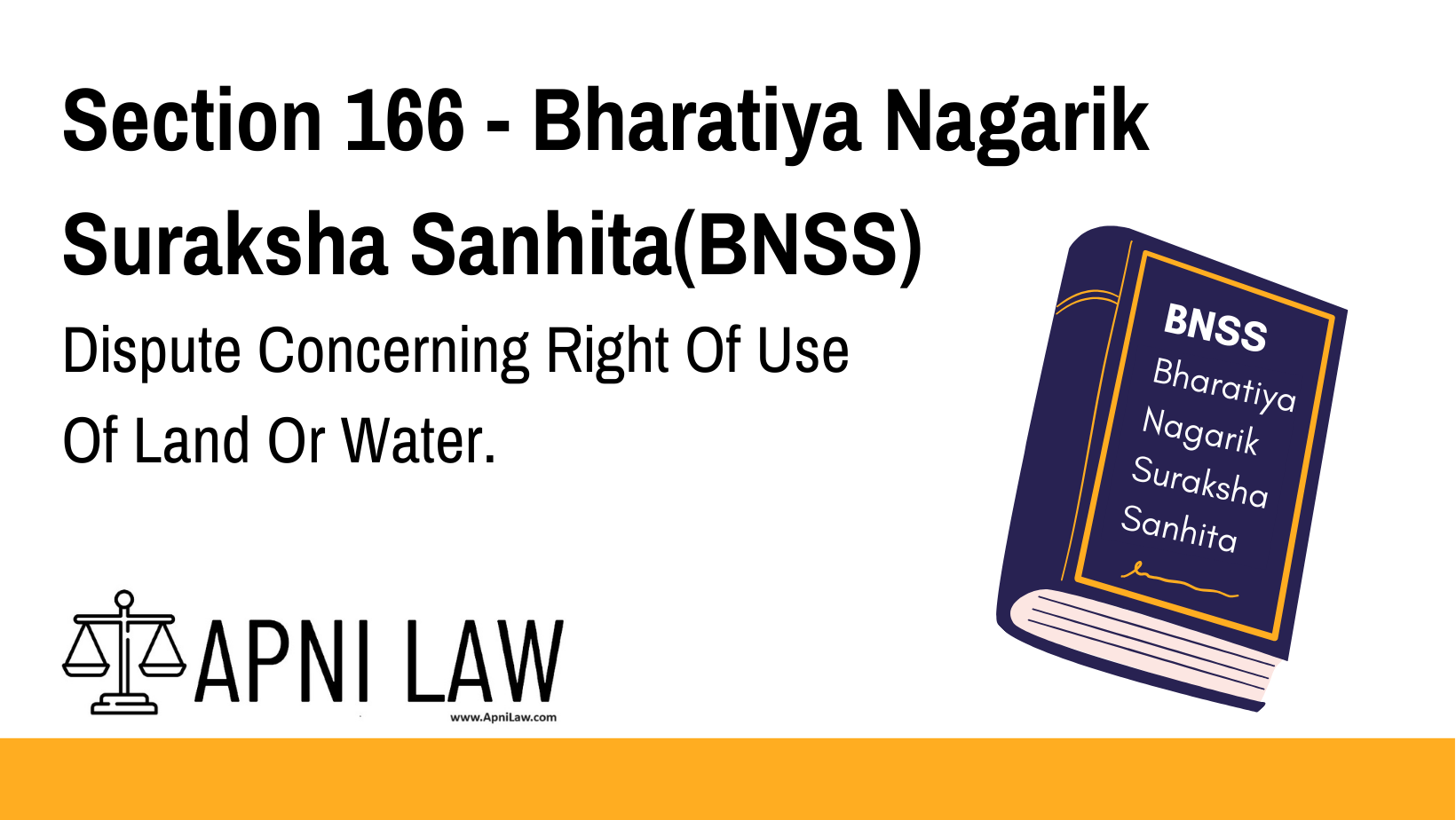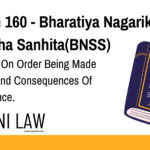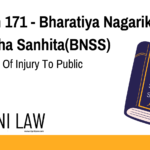Code
Dispute Concerning Right Of Use Of Land Or Water
Explanation:
This section of the Bharatiya Nagarik Suraksha Sanhita (BNSS) deals with the power of an Executive Magistrate to investigate and resolve dispute concerning right of use of land or water. It aims to prevent breaches of peace arising from such disputes.
Key Features:
- Initiation: An Executive Magistrate can initiate an inquiry based on a police report or other information indicating a dispute about land or water usage.
- Notice: The Magistrate issues a written order requiring parties involved in the dispute to appear before the Court to present their claims in writing.
- Investigation: The Magistrate investigates the dispute by examining the written statements, hearing the parties, and collecting evidence.
- Decision: The Magistrate decides whether the claimed right exists and can issue an order prohibiting interference with the exercise of the right, including the removal of any obstructions.
- Conditions: To issue an order, the individual must exercise the right within a specific time period, which depends on whether the right is exercisable at all times or only during particular seasons
Illustration:
Imagine a dispute between two farmers over the right to draw water from a common well. One farmer claims an easement, while the other denies it. The Executive Magistrate, upon receiving information about the dispute, can initiate an inquiry under Section 164. The Magistrate will then investigate the matter, hear both parties, and decide whether the claimed easement exists. If it does, the Magistrate can issue an order preventing the other farmer from interfering with the first farmer’s right to draw water.
Common Questions and Answers:
Q: What types of disputes can be investigated under Section 164?
A: Section 164 applies to disputes regarding the right to use land or water. This includes easements and other rights of access or use.
Q: Who can initiate an inquiry under Section 164?
A: Only an Executive Magistrate can initiate an inquiry under this section.
Q: What is the role of the police in this process?
A: The police may provide information to the Executive Magistrate about the dispute. Additionally, they are involved in maintaining order during investigation process.
Q: What happens if the Magistrate decides that the claimed right does not exist?
A: The Magistrate will not issue an order prohibiting interference with the right. However, the parties can still pursue their dispute through other legal means.
Q: How long does the Magistrate have to decide on the dispute?
A: There is no specific timeframe for the Magistrate to decide on the dispute. However, the Magistrate must act promptly and fairly to prevent a breach of the peace.










